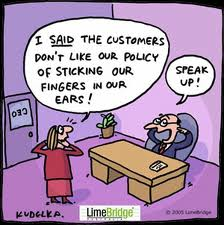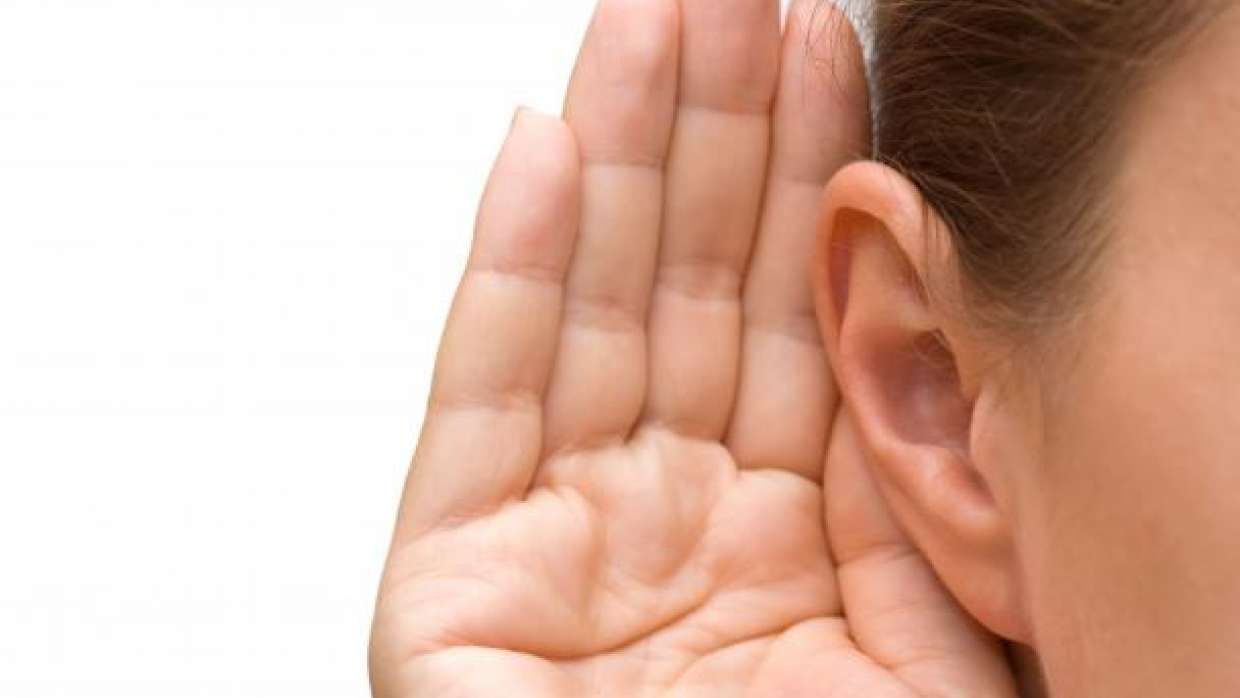
I had to put this cartoon in here, not only because it’s funny, but because it perfectly illustrates the experience most donors have with the organizations they support. Listening to donors is truly a lost art, and I think the major reason for this is that everyone is focused on the money, not the donor.
While doing some research on the subject of listening I went to a helpful site online – Mindtools – to better understand listening. Here is some relevant information from that site. There are four primary reasons we listen:
- We listen to obtain information.
- We listen to understand.
- We listen for enjoyment.
- We listen to learn.
Think about this as it relates to the donors on your caseload.
You are obviously trying to listen, I hope, to obtain information. I suppose this reason for listening is one of the most self-serving, although the more altruistic reason could be that you are wanting to get information on what the donor’s interests and passions are. I hope that is a motive of yours, i.e., to understand who the donor is and what satisfiers they might need.
But how about listening to the donor for the enjoyment of it? Do you enjoy your donors? Or instead, when you are talking with them, is your mind more focused on getting that next move completed? Or working up to the ask? Don’t get me wrong here. Both of those activities are good things to be doing. But I’m asking about just valuing the donors for who they are and enjoying them as fellow travelers. Are you doing that? If not, it would be good to ask yourself why, and then take steps toward doing it.
On this subject of listening, I have to constantly guard against just doing my thing in a conversation. I have gotten better at it, but it is very difficult for me. Here’s why. I am so objective- and goal-oriented that unless the conversation is heading toward MY objective I tune out or start thinking about how to turn it back to my agenda.
Selfish, I know, and a sore subject I am dealing with. But I have to confess it to you and tell you I am learning to find more satisfaction in simply listening without agenda to the dear person in front of me. It is becoming more of a habit for me, but I struggle with it daily.
If we were truly just listening to the donor and enjoying her, I do believe she would sense that connection and a lot more relational headway would be made. That is why I am writing about this.
Lastly, we listen to learn. There are so many things you could learn from the good donors you have – things that have nothing to do with the organization you serve and the organization the donor gives to. Things about life, points of view, challenges, hopes and dreams, struggles, all kinds of things. Think of all the wisdom that is resident in all of the donors on your caseload! Goodness. An entire library could be built with all of that knowledge. And having an attitude of learning from donors creates a very special bond between you that builds trust and relationship and, more importantly, passes real value from them to you and you to them.
The Mindtools website continues with some special advice (if you copy this, give credit to Mindtools) on how to become an active listener – advice that I have faithfully reproduced below with one exception – I substituted the word “donor” each time they used the word “speaker” because we are talking about donors here. To become an active listener you must:
- Pay Attention: Give the donor your undivided attention, and acknowledge the message. Recognize that non-verbal communication also “speaks” loudly.
- Look at the donor directly.
- Put aside distracting thoughts.
- Don’t mentally prepare a rebuttal!
- Avoid being distracted by environmental factors. For example, side conversations.
- “Listen” to the donor’s body language.
- Show That You’re Listening: Use your own body language and gestures to convey your attention.
- Nod occasionally.
- Smile and use other facial expressions.
- Note your posture and make sure it is open and inviting.
- Encourage the donor to continue with small verbal comments like yes, and uh huh.
- Provide Feedback: Our personal filters, assumptions, judgments, and beliefs can distort what we hear. As a listener, your role is to understand what is being said. This may require you to reflect what is being said and ask questions.
- Defer Judgment: Interrupting is a waste of time. It frustrates the donor and limits full understanding of the message.
- Allow the donor to finish each point before asking questions.
- Don’t interrupt with counter arguments.
- Respond Appropriately: Active listening is a model for respect and understanding. You are gaining information and perspective. You add nothing by attacking the donor or otherwise putting him or her down.
- Be candid, open, and honest in your response.
- Assert your opinions respectfully.
- Treat the donor in a way that you think he or she would want to be treated.
Now back to the cartoon at the top of this post. We both know how rude it would be to have our fingers in our ears when a donor is speaking to us. But are you doing just that when you are “listening” to your donor, or are you really listening? Take an inventory of the habits you have fallen into, both good and bad, on this subject. And then take steps to honor each good donor with your full attention.
Richard







0 Comments
Trackbacks/Pingbacks